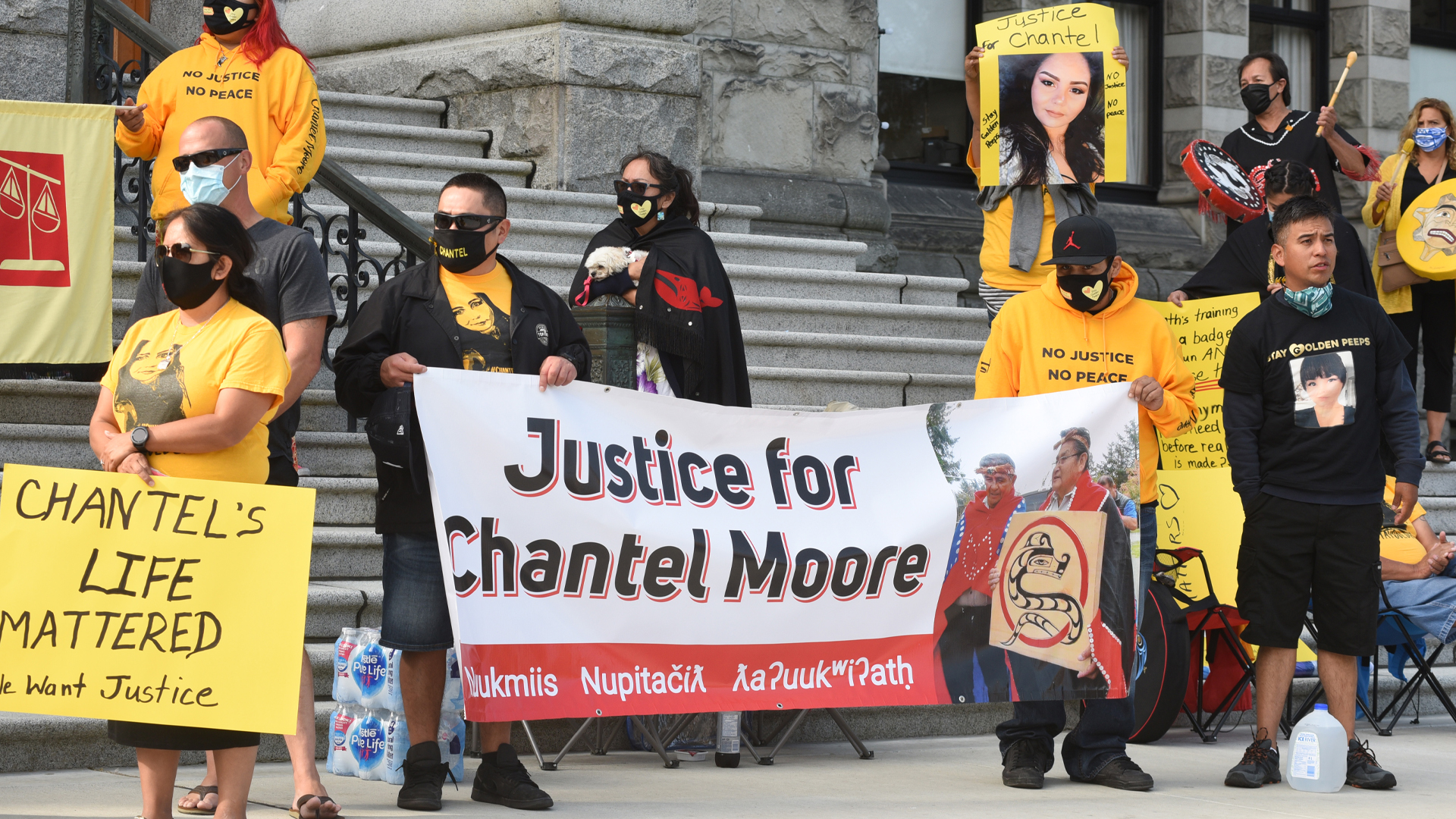If New Brunswick’s government is looking for an example of systemic racism at work in the province, it need look no further than the mandate it gave to its own commissioner on systemic racism, Manju Varma. Varma was named the first provincial commissioner on systemic racism in the country in September 2021, and I was appointed her senior adviser in October. Last month, I resigned.
She is now two-thirds into the one-year mandate from the provincial government to study the extent and scope of systemic racism and to provide recommendations to eliminate it from within governing structures and institutions.
This mandate asked the commissioner to explore a broad collection of issues in six public sectors: education, housing, social development, health, employment and criminal justice. We prioritized our focus on the activities of corresponding provincial government departments. To address the nature and effects of systemic racism on racialized immigrants and on Indigenous Peoples in New Brunswick, we have examined the government’s immigration secretariat in Opportunities NB and the Department of Aboriginal Affairs. Dr. Varma will publish her findings and final report in October 2022.
I am proud of our work and the space we gave to racialized people across New Brunswick to share their stories, experiences and visions for a better New Brunswick. But we were not what Indigenous leaders in New Brunswick demanded in the summer of 2020.
In May of that year, the province reacted to the violent murder of George Floyd by police in the United States, but – closer to home – communities grieved the police-involved death of Regis Korchinski-Paquet in Toronto and the Crown’s failure to prosecute the man charged in the hit-and-run death of Elsipogtog resident Brady Francis in New Brunswick. In June, an Edmundston police officer killed Chantel Moore of the Tla-o-qui-aht First Nation near Tofino, B.C. Eight days later, near Miramichi, an RCMP officer killed Rodney Levi of Metepenagiag. Independent coroners’ inquests have since ruled that both Moore and Levi died by homicide.
Mi’gmaq and Wolastoqey chiefs and many others across the province called for a public inquiry into systemic racism against Indigenous Peoples in New Brunswick’s criminal justice and policing sectors. In December 2020, when asked to support a motion in the legislature calling for a public inquiry, the government refused.
Instead of responding directly and positively to calls for the public inquiry, the government has, in its decision to provide us with this mandate, undermined the legitimacy of the concerns for the safety of First Nations people living in this province and on this land. We must acknowledge the violence inflicted upon First Nations people in New Brunswick through the creation of our mandate. Equating the manifestations of systemic racism unique to Indigenous Peoples with those of Black people and non-white settlers like the two of us minimizes the specific oppression of Indigenous Peoples. That is racist. We clearly cannot be an appropriate alternative to a public inquiry.
These decisions by the government have damaged its relations with First Nations and have hampered our ability to conduct our work. We were grateful for the engagement of the Mi’gmaq and Peskotomuhkati leaderships and remained conscious of their frustration, sense of betrayal and deep mistrust of the government.
However, in June, the chiefs of nine Mi’gmaq communities announced they would no longer participate in the commissioner’s process. They now join the Wolastoqey nation, who earlier chose to not participate in our work for fear that their engagement would legitimize this act of racism, and that their contributions would be neither heard nor accepted by government.
In rejecting participation in our work, the Wolastoqey leadership has been clear. Demands for a public inquiry remain. In accepting its participation in our work, the Mi’gmaq nation has been equally clear. Expectations for a public inquiry are absolute.
In the first half of 2020, Indigenous people accounted for 16 per cent of deaths from use of deadly force by police in Canada. In New Brunswick, they accounted for 100 per cent of deaths. Mi’gmaq, Wolastoqiyik and Peskotomuhkati should not have to continue, as Mi’gmaw scholar and jurist Naiomi Metallic notes, to “tolerate a deeply unresponsive justice system in part because they have not yet had their own public inquiry.”
I agree.
However, after being asked in May 2022 by Wolastoqey chiefs if Dr. Varma had seen enough at the Moore inquest to publicly recommend an Indigenous-led public inquiry, the commissioner, in an interview on CBC Radio, declined. In doing so, we have failed to meet the expectations that Indigenous leaders had of us. On June 20, I resigned from the commission.
I urge Dr. Varma to publicly and immediately call on the government to launch, without delay, an Indigenous-led, co-managed public inquiry into systemic racism against Indigenous Peoples in New Brunswick’s criminal justice and policing sectors, and that the inquiry be provided all the necessary resources and institutional support required to do its work.
The government has indicated that it is committed to rebuilding its relationship with First Nations in New Brunswick. An Indigenous-led public inquiry must be a core component of that process. The government must have the humility to accept that Wabanaki worldviews are different than European ones and must be accorded equal space and weight in this province. A public inquiry is an instrument of state; it is imperfect. But an Indigenous-led process can allow for Wabanaki worldviews to be expressed in a manner that is understood by settlers and their governance structures.
This recommendation does not negate the evident systemic racism against Black and other non-white peoples in New Brunswick’s criminal justice and policing sectors. And the commission has heard and seen evidence of violence and systemic racism against these communities, too. They also need attention. However, we must emphasize that racialized people in New Brunswick are not seeking benevolent whiteness as a fix for the systems created to exclude us from civic and political participation.
Any equity and justice we do achieve must be done in solidarity with Indigenous Peoples on whose lands we live and in recognition that the single greatest act of systemic racism in New Brunswick has been the wholesale theft of Indigenous lands by the Crown. The particular manifestations of colonialism, oppression, and racism that derive from questions of land and title are central to tackling systemic racism.
Any and all government initiatives in response to systemic racism against Indigenous Peoples must acknowledge and address this truth. New Brunswick’s commitment to reconciliation must be matched by an equally robust commitment to truth. I hope that the public inquiry will give public and formal space for this truth to be told.








